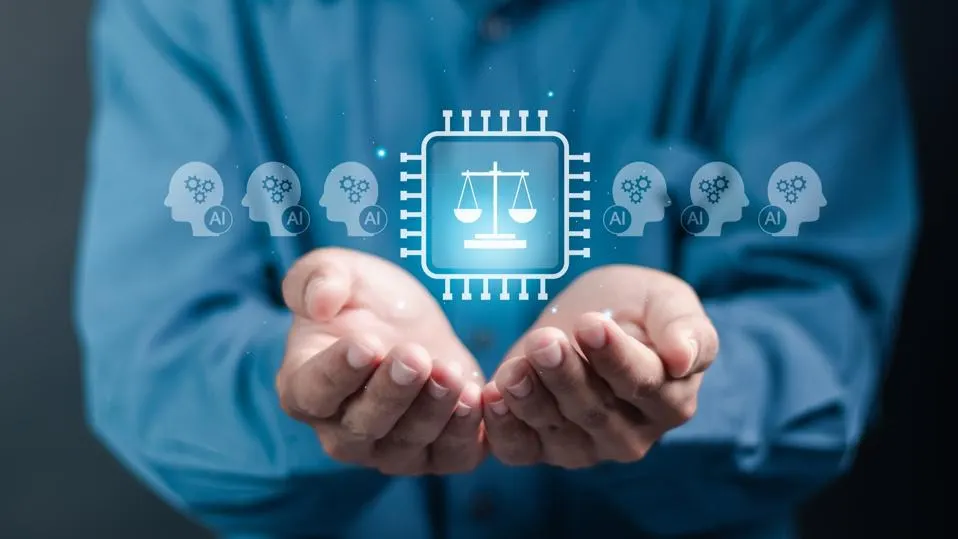AI In Healthcare: Revolutionizing Medicine Or Overhyped Promise?
12 August 2024
AI is going to change healthcare forever. In the near future, we can look forward to revolutionary new cures and treatments, personalized medicine, and a new generation of hospitals and facilities where super-smart robots take care of everything from cleaning to brain surgery.
At least – so we’re told. Now, I’m a believer in the power of AI to change the world for the better. But I can also plainly see that there’s a lot of hype around it. Technology companies stand to make trillions from selling it, and they all want us to believe their models and algorithms are the ones that will change the world.
In a world that’s quickly becoming flooded with AI washing, it’s critical that we learn how to cut through the hype and marketing bluster. So here I’ll take a look at how well one of the most frequent claims – that it will transform the fields of healthcare, medicine and wellbeing – stands up to scrutiny.

Where Are We Today?
So far, attempts to improve research and delivery of healthcare using AI have provided some encouraging success stories, as well as some clear examples of over-exaggerated expectations.
In drug and vaccine discovery, for example, it accelerated the discovery of mRNA vaccines for COVID-19. The same technology is now being used to create new protections against many other diseases. And generative AI built on similar technology to ChatGPT has also been used to create new immunotherapy drugs.
It has been used to analyze and interpret medical scans, images, medical records and tissue samples, and has been shown to be able to spot signs of diseases such as cancer and Alzheimer’s disease.
According to the American College Of Surgeons, “Most research shows that scan interpretation from AI is more robust and accurate than those from radiologists, often picking up small, rare spots in the images.”
It can shorten the length of time we need to stay in hospital, with one study of patients diagnosed with pulmonary embolism finding that those triaged with AI tools were able to return home an average of two days earlier.
The use of chatbots to answer patient questions or assist with the training of clinical staff, as well as analytics tools to help hospitals plan their use of resources more efficiently, all promise to streamline delivery and ultimately improve outcomes.
However, that isn’t to say that there haven’t also been missteps and over-inflated claims, particularly in the early days. In 2017, a partnership between IBM and MD Anderson Cancer Center was discontinued after it was found that the Watson Health system’s decision-making wasn’t accurate enough, creating a “credibility gap” with physicians.
In 2002, a study of online symptom-checker and self-diagnosis tools, some of which involve using AI to provide self-triage, found that “overall, the diagnostic and triage accuracy of symptom checkers are variable and of low accuracy … this study demonstrates that reliance upon symptom checkers could pose significant patient safety hazards.”
It should also be noted that despite the fact that many hospitals and healthcare providers are exploring the use of AI systems for creating efficiencies in administerial, record-keeping and staffing processes, it’s hard to find evidence that this has yet led to significant cost savings or improvements in patient care.
What Are The Experts Saying?
If we look beyond the words of marketers and the CEOs of big tech companies, opinions vary on the value that AI has – or will – bring to the field of healthcare.
Geneticist and cardiologist Dr Eric Topol, author of Deep Medicine, says that while AI will probably never replace a thorough physical examination by an experienced doctor, many applications are already proving highly valuable. These include self-administered kits that test for urinary tract infections and analyze lung problems from the sound of a cough.
In the future, he believes, mobile phones are likely to provide inexpensive ultrasound scans, and recognize early warning signs of diabetes from a picture of the retina.
Perhaps most valuable of all, he suggests, will be the ability of AI to restore the “human element” to medicine. By handling routine tasks, AI will free up doctors to spend more face-to-face time with patients, enabling them to develop a better understanding of their condition.
This is a position echoed by Dr Fei-Fei Li, director of Stanford University’s Institute for Human-Centered AI, who says “We’re seeing the medical profession using AI technology … [doctors] tell me that medical summaries are very painful … they take away from patients. Now you can get a language model to help.”
However an article in MIT Technology review presents a more cautionary outlook. Tools designed to diagnose disease or predict outbreaks could be trained on limited or biased data – for example, research has shown that some tools are less effective with female patients simply because less women take part in medical studies.
And Dr. Robert Glatter, assistant professor of emergency medicine at the Zucker School of Medicine, together with Dr. Peter Papadakos, professor of anesthesiology and surgery at the University of Rochester Medical Center, in their article No AI Can Ever Learn The Art Of Medicine, argue “Even with the advent and ongoing evolution of AI … empathy is best learned and communicated in the form of bedside teaching by humans – not AI or chatbots.”
The Verdict – Hype Or Reality?
While AI has undoubtedly already made significant impacts and seems likely to become more valuable as we move forward, it’s unlikely to be the literal panacea that will cure all of our ills.
However, we’re in the very early days of the AI revolution, and successes in fields such as drug discovery and detection of early warning signals clearly demonstrate that the potential to improve care and outcomes is real.
Challenges – particularly around data privacy, implementation costs and training of healthcare professionals in its use – will need to be overcome before the most optimistic predictions become viable.
As in other fields, professionals agree that its most valuable applications will involve augmenting rather than replacing human skills, experience and expertise.
For the technology companies building tools, keeping this firmly in mind while developing the next generation of AI-enhanced medical applications will be key to driving real change that will benefit us all.
Related Articles
Will AI Solve The World’s Inequality Problem – Or Make It Worse?
We are standing on the cusp of a new technological revolution. AI is increasingly permeating every aspect of our lives, with intelligent machines transforming the way we live and work.[...]
How You Become Irreplaceable In The Age Of AI
In a world where artificial intelligence is rapidly advancing, many of us are left wondering: Will AI take our jobs?[...]
Why Apple Intelligence Sets A New Gold Standard For AI Privacy
In the rapidly evolving world of artificial intelligence, privacy concerns have become a hot-button issue.[...]
Can Your Device Run Apple Intelligence? What You Need To Know
Apple's announcement of Apple Intelligence has sent waves of excitement through the tech world.[...]
10 Amazing Things You Can Do With Apple Intelligence On Your IPhone
Apple Intelligence is poised to revolutionize the iPhone experience, offering a suite of AI-powered tools that promise to make your digital life easier, more productive, and more creative.[...]
Agentic AI: The Next Big Breakthrough That’s Transforming Business And Technology
The world of artificial intelligence is evolving at a breakneck pace, and just when you thought you'd wrapped your head around generative AI, along comes another game-changing concept: agentic AI.[...]
Sign up to Stay in Touch!
Bernard Marr is a world-renowned futurist, influencer and thought leader in the fields of business and technology, with a passion for using technology for the good of humanity.
He is a best-selling author of over 20 books, writes a regular column for Forbes and advises and coaches many of the world’s best-known organisations.
He has a combined following of 4 million people across his social media channels and newsletters and was ranked by LinkedIn as one of the top 5 business influencers in the world.
Bernard’s latest book is ‘Generative AI in Practice’.










Social Media